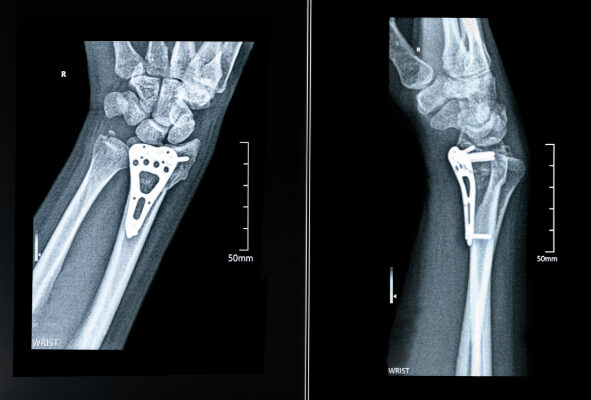Rideshare services have become a staple of modern transportation, as the convenience of requesting a ride at the tap of a screen has replaced the hassle of driving, parking, or relying on public transit. As rideshare use in Colorado has surged, so too have reports of violent crimes, sexual assaults, and driver impersonation incidents. In response, Colorado lawmakers introduced House Bill 1291 (the Rideshare Safety Bill) to establish new protocols for rideshare services like Uber and Lyft. The legislation requires rideshare services to (1) perform bi-annual background checks on drivers, (2) ban hiring of people convicted of certain crimes, (3) investigate complaints within 72 hours, and (4) establish continuous audio and video recording of drivers during trips. Uber threatened to leave Colorado if the bill is signed into law by Governor Jared Polis.
Colorado House Bill 1291, introduced in the 2025 legislative session, targets a pressing issue: the lack of standardized safety mechanisms within Transportation Network Companies (TNCs). While companies like Uber and Lyft have basic in-app safety features and allegedly perform background checks on drivers, these measures have proven insufficient in preventing some of the most disturbing incidents involving rideshare drivers.
High-profile cases across the country have drawn attention to the dangers that can arise when proper safeguards are not in place. In South Carolina, the tragic murder of Samantha Josephson in 2019 shocked the nation. She mistook a vehicle for her Uber, entered the car, and was later found murdered. Her case sparked national outrage and prompted calls for stronger identification measures for TNC drivers.
In Colorado, several lawsuits and reports have detailed instances of sexual assault, physical violence, and driver impersonation. For example, as reported by CBS News, between 2018 and 2022, John Pastor-Mendoza posed as a rideshare driver in Denver, kidnapping 12 women and sexually assaulting two of them. He was convicted on 30 charges, including kidnapping and sexual assault. Pastor-Mendoza exploited the trust passengers place in rideshare services by impersonating legitimate drivers.
According to Westword, in February 2024, State Representative Jenny Willford was sexually assaulted by a man using another individual’s Lyft account. The assailant allegedly made lewd comments and physically assaulted her when she attempted to exit the vehicle. Representative Willford has filed a civil lawsuit against Lyft, asserting the company failed to ensure passenger safety by allowing unauthorized drivers to operate on its platform.
Victims often describe scenarios where drivers disabled GPS tracking, manipulated in-app settings, or were never properly identified in the first place. These failures point to systemic gaps that put passengers—particularly women and vulnerable individuals—at risk.
Specific Provisions of the Rideshare Safety Bill
These cases highlight systemic vulnerabilities in rideshare platforms, such as inadequate driver verification processes and the prevalence of “account renting,” where individuals share or sell driver accounts, bypassing background checks. In response to these concerns, Colorado’ House Bill 1291’s proposed Rideshare Safety Bill proposes several safety enhancements:
- Mandatory Audio and Video Recording: Requiring continuous recording of rides to deter misconduct and provide evidence when necessary. These recordings would be stores securely and made accessible to law enforcement when investigating complaints or reports of criminal activity. Notably, the bill also provided guidelines to ensure compliance with privacy standards, including limited access to recordings and clear disclosures to passengers.
- Enhanced Driver Verification: Implementing biometric identification or real-time photo verification to ensure the driver matches the account.
- Rigorous Background Checks: Mandating fingerprint-based criminal history checks for drivers before employment and periodically thereafter.
- Transparency and Accountability: Allowing passengers to access ride data when filing complaints and obligating companies to respond promptly to law enforcement inquiries.
House Bill 1291 is more than a regulatory update—it’s a community safety initiative. By mandating real-time documentation of rides, the law would provide an objective account of what happens inside a vehicle. This measure would act as both a deterrent to misconduct and a means of justice when violations occur.
For passengers, especially women traveling alone or individuals in unfamiliar areas, the assurance of a monitored ride could offer peace of mind. For drivers, the recordings could protect against false accusations or help resolve payment and conduct disputes fairly. It’s a win-win for accountability on both sides.
Yet, Uber vehemently opposed the new measure, threatening to leave Colorado unless Governor Polis vetoed the rideshare bill. In a statement provided to the Coloradoan, Spokesperson Stefanie Sass “urges Governor Polis to veto HB25-1291, a bill developed behind closed doors and driven by the financial interests of billboard attorneys — not the needs of Coloradans.”
Recent Amendments to the Rideshare Safety Bill
As House Bill 1291 progressed through the Colorado legislature, lawmakers introduced several significant amendments in response to opposition from rideshare companies. The amendments came after Uber threatened to cease operations in Colorado if the bill passed. These amendments reflect a compromise between rider safety advocates and industry stakeholders, but they substantially altered the bill’s enforcement mechanisms and liability provisions.
One of the most notable amendments concerned the audio and video recording requirements. Originally, the legislation would have mandated continuous recording during rides to deter assaults and other misconduct. However, under the amended version, recording is now optional. Riders and drivers may choose to opt in. The Public Utilities Commission is tasked with developing rules around the feature, including educational initiatives about its safety benefits. This compromise was difficult for sponsors, who acknowledged that individuals with malicious intent are unlikely to record their own conduct. Still, civil rights concerns and pressure from the rideshare industry made this concession necessary.
Another major change narrowed the scope of civil liability. Under the revised bill, passengers can only bring a civil lawsuit against a driver or fellow rider in cases involving sexual assault, kidnapping, personal injury, or death. All other claims, such as disputes over conduct or service quality, must be resolved through arbitration. This amendment aims to limit the legal exposure of rideshare companies, addressing concerns raised by Uber about the potential for excessive litigation.
The bill was further amended to clarify the obligations of drivers convicted of disqualifying offenses. Under the new language, a driver must notify the rideshare platform within 48 hours of pleading guilty to an offense that would disqualify them from driving. Importantly, the company is shielded from liability if the driver fails to make this disclosure. This provision seeks to balance public safety with the practical limitations on companies’ ability to independently track criminal proceedings in real time.
To address concerns about discrimination, lawmakers added a provision allowing rideshare companies to remove ratings and reviews determined to be bias-motivated. Additionally, the timeline for companies to respond to complaints against drivers was extended from 72 hours to seven days, giving platforms more flexibility in conducting investigations.
While these amendments represent substantial changes to the bill, it remains unclear whether they will be enough to satisfy Uber. Uber has criticized the last-minute nature of the revisions and expressed concern about the rushed legislative process. Nonetheless, the bill’s sponsors emphasized the amendments were made in collaboration with stakeholders in an effort to preserve rider safety while maintaining rideshare services in Colorado.
A Step Toward Rideshare Safety in Colorado
Despite the compromises made, the legislation represents a critical step toward addressing the growing concerns surrounding rideshare safety. Rideshare platforms like Uber and Lyft have fundamentally changed the way we travel, but they have also introduced legal gray areas when things go wrong. Issues like inadequate driver screening, failure to act on complaints, or misconduct during rides have highlighted the need for more accountability and better protections for passengers.
At Bowman Law, we understand that rideshare injury cases are uniquely complex. We have drafted articles about the insurance issues that plagued the rideshare service industry. These claims often involve overlapping layers of liability—between the driver, the rideshare company, and third-party insurers—and the legal landscape is evolving rapidly. Our rideshare injury attorneys know how to navigate the nuances of these cases. Whether it’s understanding arbitration clauses, dealing with app-based evidence, or identifying insurance coverage, our firm has the experience to protect clients’ rights and pursue full compensation.
As Colorado continues to refine its approach to regulating the rideshare industry, it’s essential that injured passengers have strong legal advocates by their side. Laws like House Bill 1291 may not solve every issue, but they represent progress—and for those harmed by negligence or misconduct in a rideshare vehicle, legal accountability starts with informed representation. If you or a loved one has been injured during a rideshare trip, Bowman Law is here to help.
We stand in support of legislation that holds companies accountable and keeps Coloradans safe on the road—wherever their destination may be.



 Return to All News & Resources
Return to All News & Resources


